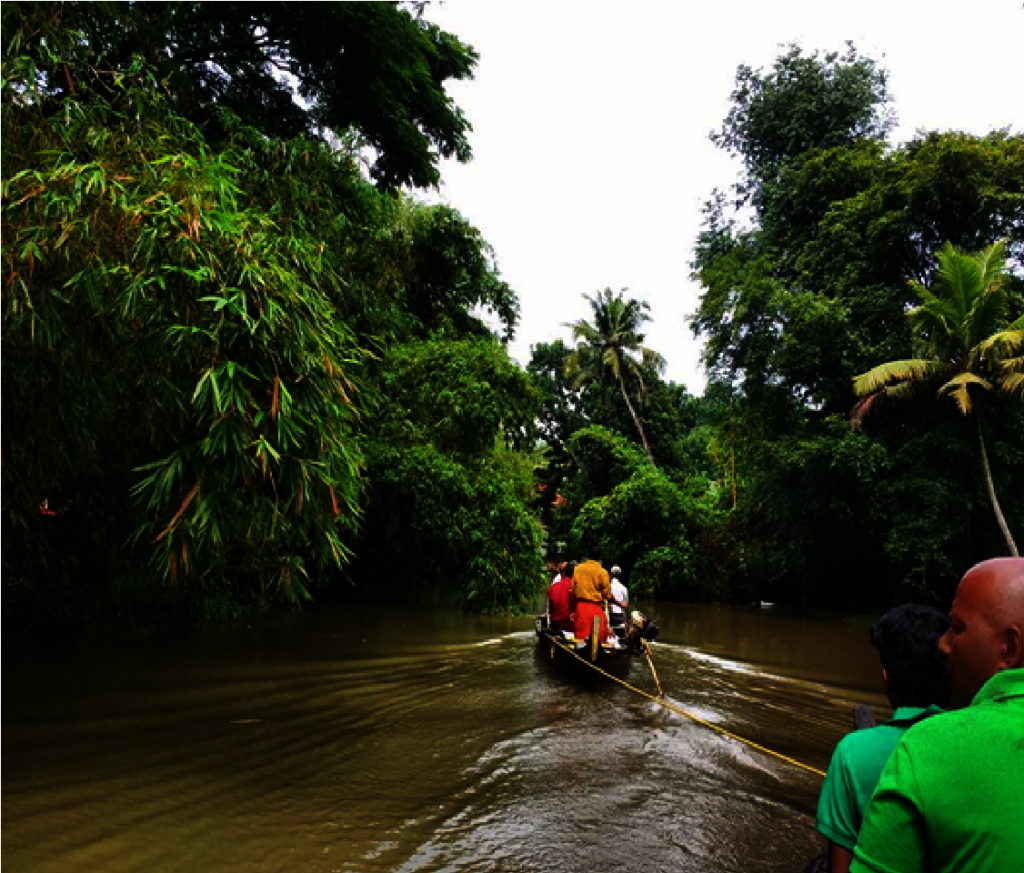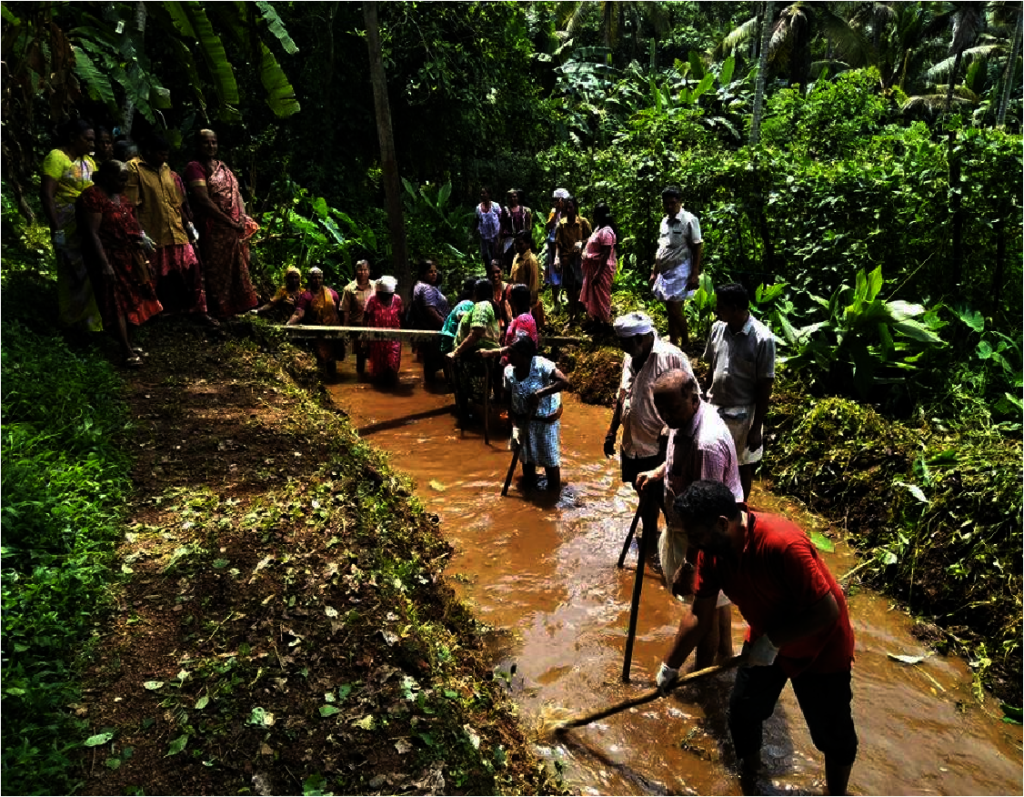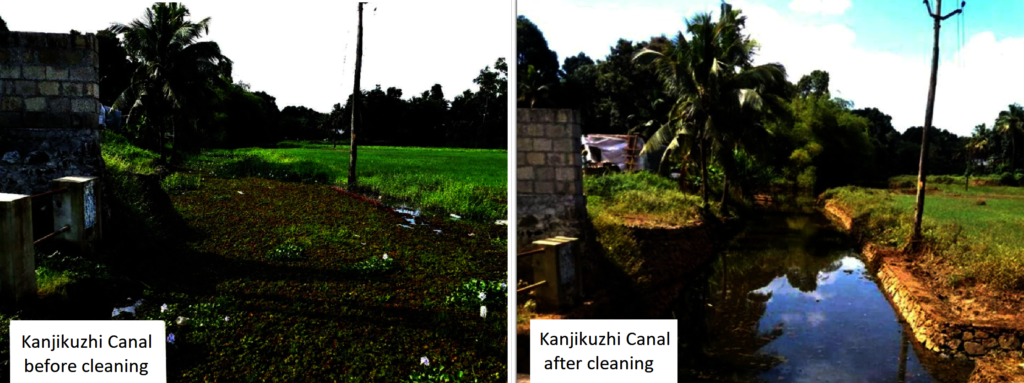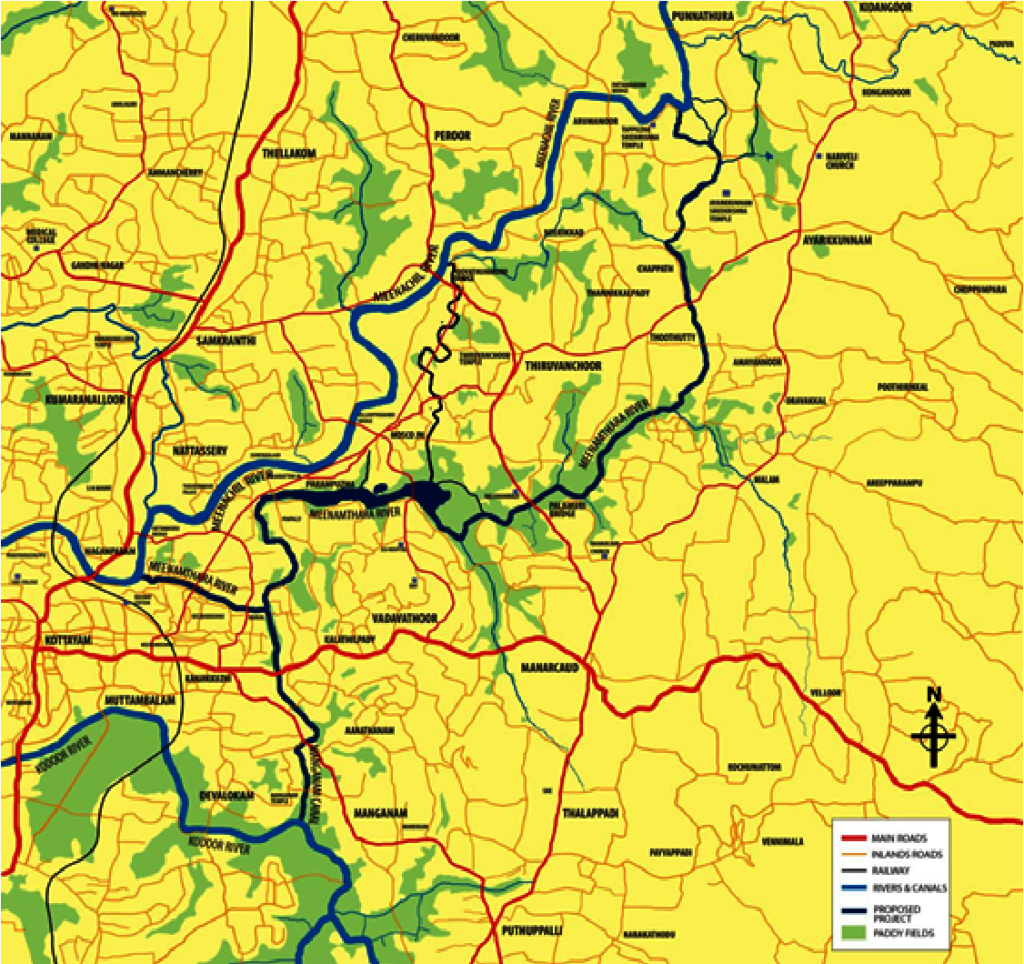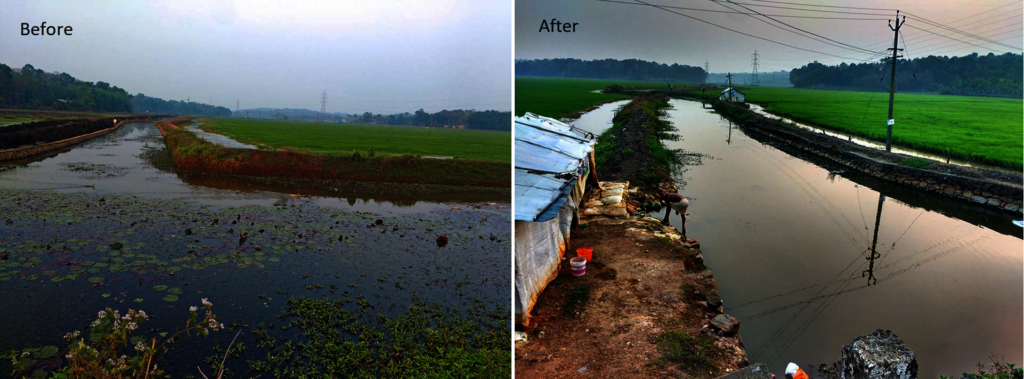By Leena fernandez | Project Leader
Rejuvenation of riverine system is an approach to conserve the riverbed, riparian ecosystem and most importantly, the watershed. It aids re-establishing adequate flow of water in rivulets that have been encroached or have dried up. The sustainability of such an initiative is entirely dependent on community participation.
Meenachil is the main river passing through 34 Gram Panchayats and 4 municipalities in Kottayam district in the southern Indian state of Kerala. Meenanthara and Kodoor rivers are its tributaries. These three rivers were connected in the past at many locations through small streams and rivulets (puzha), but many such connections have since been lost because of change in land use and encroachments. Cutting off small water channels in this manner has resulted in thousands of acres of paddy fields turning barren. The Meenachil River was once an ideal breeding ground for more than 70 varieties of fishes but now the aquatic diversity has been drastically depleted because of decreasing inflow of water. Illegal sand mining has also altered the original course of the river.
Meenachil-Meenanthara-Kodoor Rejoining Peoples Collective (MMKRPC) evolved to rejuvenate these three rivers by re-joining them through the connecting rivulets and streams. As technical partner to this massive project, TIES has the responsibility for research, developing initiatives, implementing activities and reaching out to potential partners to support project activities such as the one at Elipulikkattukadavu.
River Relinking at Elipulikkattukadavu
Elipulikkattukadavu is on the Meenanthara river near Kottayam. The area is criss-crossed with a number of distorted and polluted rivulets. In some locations, the original paths of the streams had been completely blocked by soil deposition, weed growth and dumped household waste. During the course of this project, obstructions to free flow of water were removed, rivulet banks reinforced and, wherever necessary, new bridges were constructed for ease of access.
There was hands-on participation with the community turning out in force armed with shovels and buckets. Heavy machinery had to used in some instances when illegal encroachments were removed or restrained. The work was accomplished with all sections of the community participating; farmers, local women self-help groups, government officers including representatives of Agriculture and Irrigation Departments, agriculture engineers, scientists, researchers, elected representatives etc.
As a result of this initiative. the revived rivers recharged open wells nearby which helped hundreds of households overcome hydrological drought during the summer of 2018, As part of the project, over 1200 acres of abandoned fields have been restored with paddy cultivation after 20-25 years. Also, during the 2018 flood disaster in Kerala, these rejuvenated rivulets helped in flood control by enabling free onward flow of water.
With the restart of agriculture, the farmers have taken on the responsibility of keeping the water flow uninterrupted and unpolluted, turning formerly abandoned and waste-choked rivulets into beautiful inland waterways.
The project that began at Elipulikkattukadavu and has restored around 156 km of rivulets and streams. Almost 55 rivulets were restored as part of this. The Meenachil-Meenathara-Kodoor river complex still has more than 3000 small streams and rivulets that have been killed by neglect. Reviving these areas would give a new lease of life to many acres of farmlands. These areas are being mapped and the community engaged with in preparation for similar projects.
We usually hear of rivers bringing life to man, but with your support, we have been able to bring life to rivers. We cannot thank you enough for being a part of this massive effort and we look forward to sending you more updates on our activities.
Project reports on GlobalGiving are posted directly to globalgiving.org by Project Leaders as they are completed, generally every 3-4 months. To protect the integrity of these documents, GlobalGiving does not alter them; therefore you may find some language or formatting issues.
If you donate to this project or have donated to this project, you can receive an email when this project posts a report. You can also subscribe for reports without donating.
Support this important cause by creating a personalized fundraising page.
Start a Fundraiser